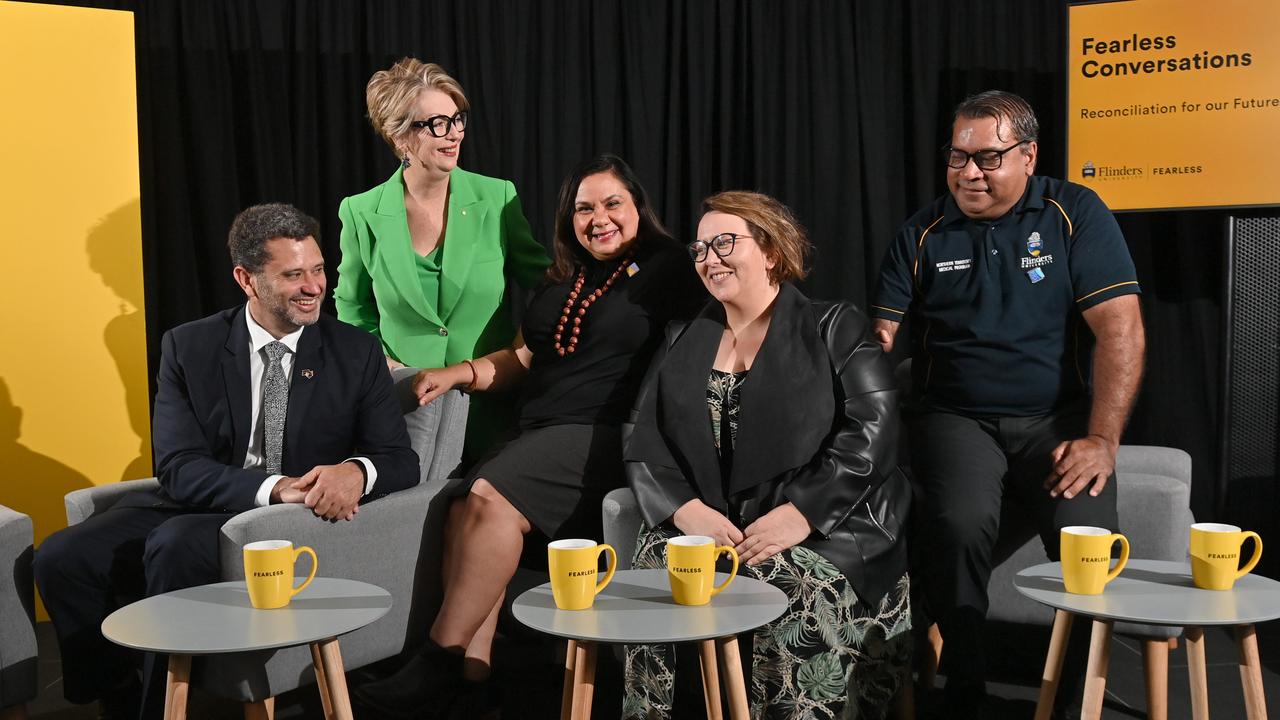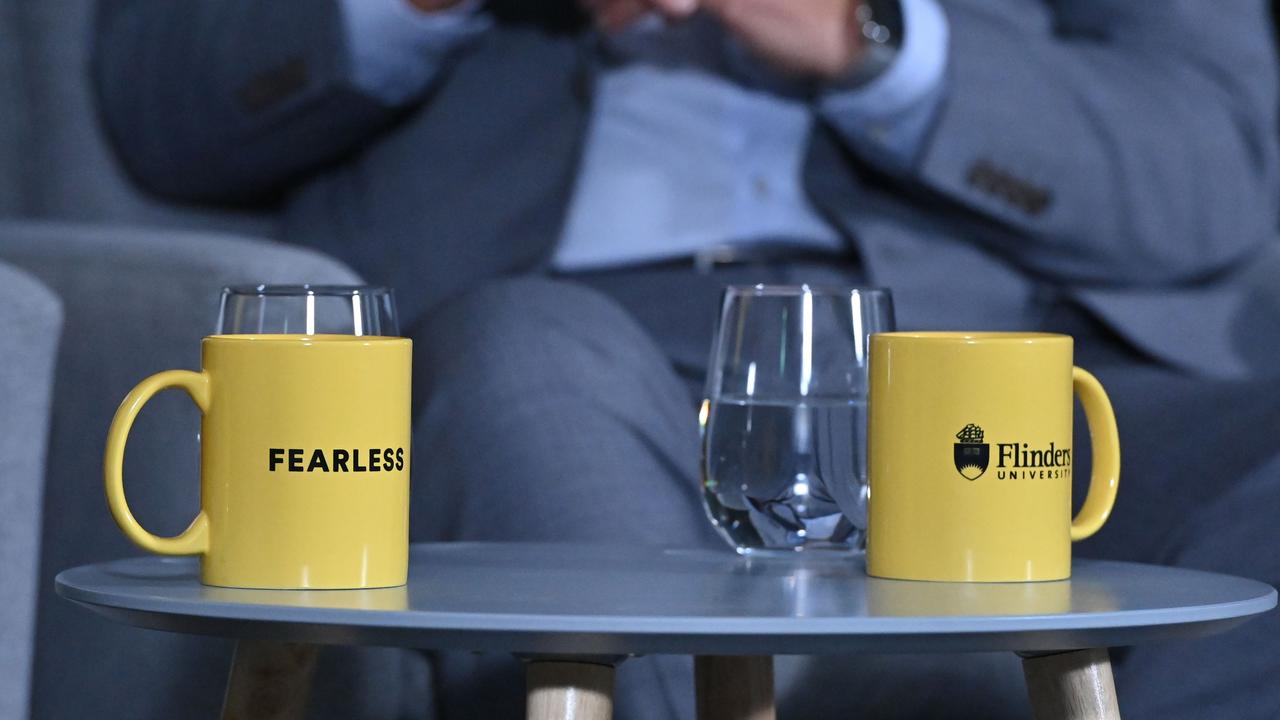Fearless Conversations: Truth-telling vital for reconciliation, says Flinders University Associate Professor Simone Tur
For hundreds of years, people from different countries have come to Australia and found a home. So why not our First Nations? Watch SA leaders debate reconciliation issues.
Education is key to changing social perceptions and driving reconciliation in Australia, a leading academic says.
Flinders University Associate Professor Simone Tur, Pro Vice-Chancellor (Indigenous), is calling for a more proactive educational campaign to “demystify” misconceptions and concerns over Australian history and its treatment of First Nations peoples.
“We need a broader educational campaign so there’s a demystification of perhaps the fear that might be put into what change will actually look like and say, ‘This is about coming together as a nation, this is about truth-telling, this is about race relations’,” the associate professor, who is from the Yankunytjatjara community in north-west South Australia, said.
“I think higher education in particular is a really important part of that process.”
Associate Professor Tur was speaking during this week’s The Advertiser and Flinders University Fearless Conversations forum.
It is the fourth of the 2022 series, which brings together leading voices in roundtable discussions about the big issues facing the state.
Hosted by 7NEWS journalist and presenter Jane Doyle, the panel also included Kyam Maher, Attorney-General of South Australia and Minister for Aboriginal Affairs, Reconciliation SA CEO Shona Reid and Flinders University’s Uncle Richard Fejo, a senior elder on campus in Darwin.

Ms Reid, a proud Eastern Arrernte woman, said that reconciliation can never be fully achieved while First Nations peoples are still referred to as “wicked problems in our society” and “still not fully accepted in our country”.
“We still have over-representation in all really difficult areas: we’re referred to as wicked problems in our society, ostracised, (there is) over-representation in detention centres, child protection system, out-of-home care system,” she said.
In contrast, she said, migrants arriving on Australian shores are mostly welcomed.
“Different waves of people from different countries have come and have found a place in Australia. If that can happen, why is it that First Nations people are after 200-odd years still not made to feel comfortable in our country?
“We have yet to feel welcome in a land that was ours to begin with. At what stage does that change?”

Mr Maher stressed the importance of facing up to the past in order to move forward.
“Unless you can acknowledge what’s happened in the past, you really don’t understand where we are. And if you don’t do that, it’s hard to move forward,” he said. “It is central to reconciliation that we do better (but) we don’t do it very well.”
Other issues canvassed in the wide-ranging discussion included the introduction of Kaurna place names in Adelaide’s city and parklands, the disparities between Aboriginal and non-Aboriginal peoples in South Australia and the importance of encouraging Aboriginal students into higher education.



